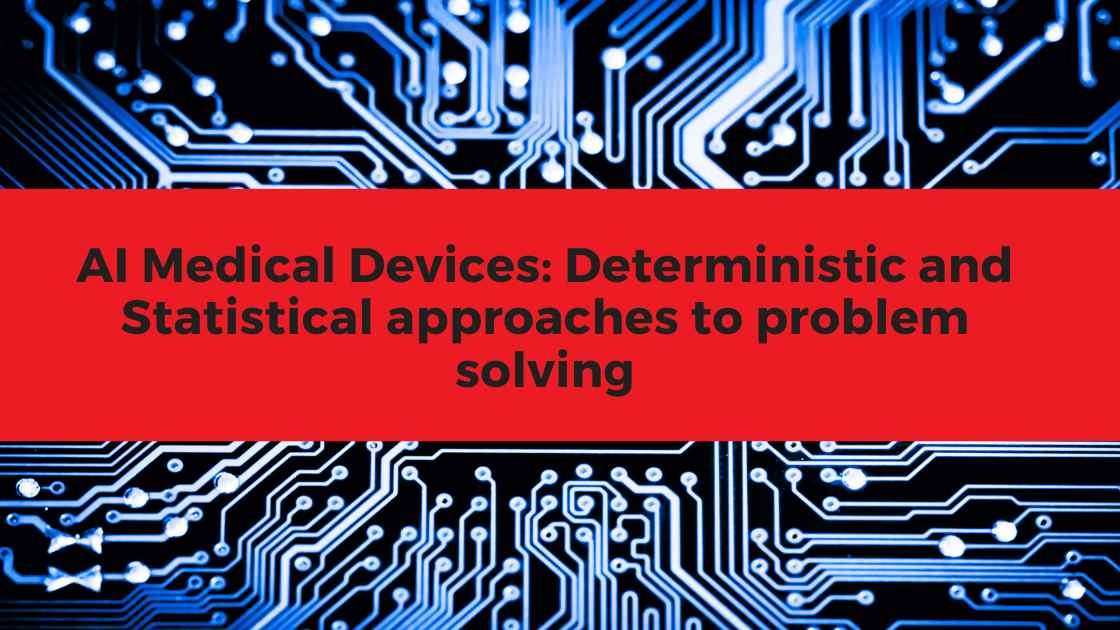Medical Devices: Deterministic & Statistical AI
AI systems can be broadly classified based on their approach to problem-solving, either as deterministic or statistical.
What is Deterministic AI?
Deterministic AI involves systems that operate under a set of predefined rules. These AI systems follow a clear, cause-and-effect pathway, meaning they will always produce the same output.
Medical Devices and Deterministic AI
In the context of medical devices, deterministic AI might be used in applications where consistency and predictability are key. For example, a deterministic AI medical device could be used to control the release of medication from a device based on pre-determined criteria.
The Advantages of Deterministic AI
- Because of their predictability, deterministic AI systems can be highly reliable in critical applications where there is little room for error.
- The clear, rule-based logic makes it easier to validate and verify for safety certifications and regulatory compliance.
The Limitations of Deterministic AI
- They cannot adapt to unforeseen circumstances or novel inputs not accounted for in their programming.
What is Statistical AI?
Statistical AI relies on probability and statistical methods to make predictions or decisions based on data. These systems, including machine learning and deep learning models, learn from data and improve their performance over time as they are exposed to more data.
The Advantages of Statistical AI
- Adaptability: Statistical AI can adapt to new data, making it suitable for applications where conditions may change over time, such as diagnostic imaging or patient monitoring systems.
- Complex Decision Making: They can handle complex, non-linear relationships in data that deterministic systems might not be able to model.
- Uncertainty Handling: These systems can deal with uncertainty and make predictions even with incomplete data, which is often the case in medical diagnostics.
The Limitations of Statistical AI
- Need for Data: Their performance heavily depends on the quantity and quality of the data they are trained on, which can be a limitation in data-scarce environments.
Which approach is best?
The choice between deterministic and statistical AI in medical devices often depends on the specific application and its requirements for:
- Accuracy
- Reliability
- Adaptability
- Regulatory compliance.
In some cases, a hybrid approach might be employed, combining the reliability of deterministic methods with the adaptability of statistical ones.
For example, a medical device might use deterministic AI for safety functions while incorporating statistical AI to analyze patient data and adjust treatment recommendations based on patterns that emerge from the data.
You might also be interested in…
Differences between UK MDR and EU MDR
EU MDR (Medical Device Regulation)
Do you sell medical devices in the UK? You may require a UK Representative for medical devices to sell in the UK.




Comments are closed here.